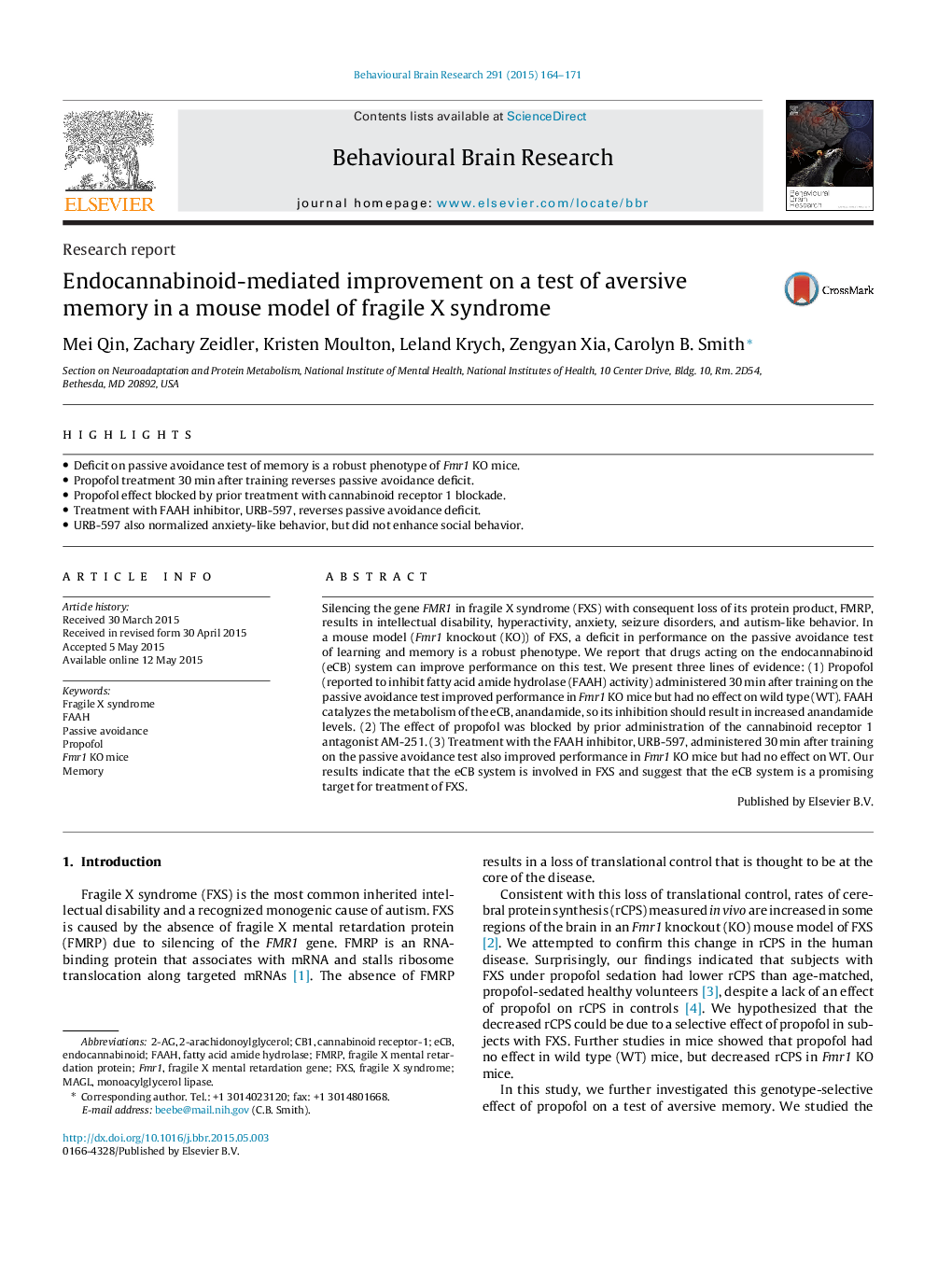| کد مقاله | کد نشریه | سال انتشار | مقاله انگلیسی | نسخه تمام متن |
|---|---|---|---|---|
| 4312386 | 1612941 | 2015 | 8 صفحه PDF | دانلود رایگان |

• Deficit on passive avoidance test of memory is a robust phenotype of Fmr1 KO mice.
• Propofol treatment 30 min after training reverses passive avoidance deficit.
• Propofol effect blocked by prior treatment with cannabinoid receptor 1 blockade.
• Treatment with FAAH inhibitor, URB-597, reverses passive avoidance deficit.
• URB-597 also normalized anxiety-like behavior, but did not enhance social behavior.
Silencing the gene FMR1 in fragile X syndrome (FXS) with consequent loss of its protein product, FMRP, results in intellectual disability, hyperactivity, anxiety, seizure disorders, and autism-like behavior. In a mouse model (Fmr1 knockout (KO)) of FXS, a deficit in performance on the passive avoidance test of learning and memory is a robust phenotype. We report that drugs acting on the endocannabinoid (eCB) system can improve performance on this test. We present three lines of evidence: (1) Propofol (reported to inhibit fatty acid amide hydrolase (FAAH) activity) administered 30 min after training on the passive avoidance test improved performance in Fmr1 KO mice but had no effect on wild type (WT). FAAH catalyzes the metabolism of the eCB, anandamide, so its inhibition should result in increased anandamide levels. (2) The effect of propofol was blocked by prior administration of the cannabinoid receptor 1 antagonist AM-251. (3) Treatment with the FAAH inhibitor, URB-597, administered 30 min after training on the passive avoidance test also improved performance in Fmr1 KO mice but had no effect on WT. Our results indicate that the eCB system is involved in FXS and suggest that the eCB system is a promising target for treatment of FXS.
Journal: Behavioural Brain Research - Volume 291, 15 September 2015, Pages 164–171